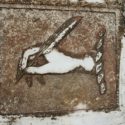Sometimes the best way to pick up new tips and tricks is to see how other people work through a task. With that in mind, here’s a peek into the writing process of Laura, one of our illustrious tutors. Thanks for volunteering, Laura!
- What are your favorite pre-writing strategies? What works for you?
My favorite pre-writing strategy is freewriting. I have a document for almost every paper I write in which I blather on to myself about the assignment, often hoping that ideas will evolve in the process. I start many a freewriting session with, “I have no idea what my thesis is,” or, “I really don’t want to write today.” However, even if those things are true, it doesn’t matter because if I put enough useless stuff on the page, eventually, something useful happens.
- Are you a “start writing and see what happens” kind of writer, or a writer who doesn’t start writing unless they have a plan?
I’ve done it both ways, but 95% of the time, I have a plan; often, a very detailed plan. Sometimes that plan involves multiple documents.
- Do you have any tricks that help you get your first draft onto the paper? What do you do if you get stuck?
First, I make sure I have an outline, a thesis, and a collection of quotes (when relevant) before I start so I don’t feel like I’m going in blind. However, even then it can be difficult to start writing, as starting the paper is usually the hardest part for me. However, what I find helps is giving myself enough time to break the drafting process up into multiple shifts, so I don’t feel like I have to write the entire thing in one go (depending on the paper length of course). Another thing that helps me is to just start free writing until my thoughts start to sound coherent, and start from there.
- When you revise, what do you look at first? Do you have a pretty standard revision process, or does it depend on the individual paper?
When I revise, I send my paper off to someone else to look at it, as I feel like I am often too close to my paper to see what could use improvement. Alternatively, I will put the draft aside for a day and look at it with fresher eyes. That always makes it easier to revise!
- Is there anything you find yourself always having to watch for when you edit? What’s your kryptonite?
I use too many quotes. Quotes quotes quotes. I love them. I am very much a “don’t reinvent the wheel” kind of person, so when there is a good quote, I weave it in. Granted, I do this well, but too much. I have been told that by paraphrasing more, I can show a better personal grasp of the content.
- Anything else about your writing process that you want to share with other writers?
While it is all good and dandy to collect pages of notes before starting my drafts, I often find that I go a little overboard. I believe this is a form of procrastination. In my mind, I’m working on the paper by looking up quotes/developing my outline, but in reality, it gets to the point where I am just stalling. Also, I find that often times, my careful planning ends up being less useful than I thought, as the outline shifts around and large swaths of quotes are never used. I have had to learn to recognize when it’s time to put down the notes, and start writing the actual paper.
"Hand with a quill pen" by Monceau is licensed under CC BY-NC-ND 2.0

